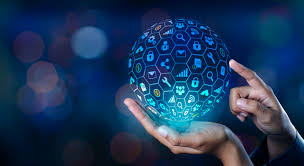Introduction: As technology continues to advance at an exponential rate, it’s hard to predict what the future will look like, but it’s clear that transformative changes are on the horizon. From artificial intelligence and quantum computing to biotechnology and renewable energy solutions, the next few years promise to reshape industries and everyday life. This article explores some of the key trends and technologies expected to define the world in 2025.
1. Artificial Intelligence (AI) and Machine Learning
AI and machine learning have already begun to impact various sectors, from healthcare to finance, but their influence will deepen in the coming years.
- Automation and Efficiency: Businesses will increasingly adopt AI to automate processes, from customer service chatbots to autonomous vehicles. This will lead to greater efficiency in operations and reduced human error.
- AI in Healthcare: AI algorithms will become more accurate in diagnosing diseases, developing personalized treatment plans, and predicting health outcomes, revolutionizing healthcare delivery.
- Ethical Considerations: As AI becomes more powerful, ethical challenges, such as job displacement and privacy concerns, will need to be addressed.
2. Quantum Computing
Quantum computing is on the cusp of breaking through to mainstream applications. In 2025, we can expect more powerful quantum computers that can solve problems beyond the capability of classical computers.
- Applications in Cryptography: Quantum computers could revolutionize encryption, making current encryption methods obsolete while also enabling new forms of secure communication.
- Scientific Breakthroughs: With their ability to process massive amounts of data in parallel, quantum computers will accelerate discoveries in fields like medicine, climate science, and physics.
- Commercial Use Cases: Although still in its infancy, quantum computing could solve complex optimization problems in areas like logistics, financial modeling, and supply chain management.
3. 5G and Beyond: The Connectivity Revolution
5G technology is set to provide faster, more reliable internet, opening the door to innovations that require high-speed, low-latency connections.
- Smart Cities: With ultra-fast 5G networks, cities can implement smart infrastructure, including smart traffic management, energy-efficient buildings, and real-time environmental monitoring.
- IoT Growth: The Internet of Things (IoT) will thrive under 5G, enabling a connected ecosystem of devices that will improve everything from healthcare monitoring to home automation.
- Autonomous Vehicles: Enhanced connectivity will support the development and deployment of autonomous vehicles, improving road safety and reducing traffic congestion.
4. Biotechnology and Genetic Engineering
Biotechnology has made significant strides in recent years, and by 2025, the field is expected to reach new heights in areas like gene editing, personalized medicine, and synthetic biology.
- CRISPR and Gene Editing: Technologies like CRISPR-Cas9 will enable precise gene editing, which could lead to cures for genetic disorders, improved crop yields, and advancements in regenerative medicine.
- Personalized Medicine: Thanks to breakthroughs in genomics and bioinformatics, treatments will be increasingly tailored to an individual’s genetic makeup, optimizing their effectiveness and minimizing side effects.
- Synthetic Biology: Synthetic organisms and bioengineered systems could lead to advancements in sustainable energy, biodegradable materials, and the creation of new medicines.
5. Blockchain and Decentralized Finance (DeFi)
Blockchain technology has already disrupted industries such as finance, supply chain management, and digital identity verification. By 2025, it will likely be a foundational technology in many sectors.
- Smart Contracts: Blockchain’s ability to execute smart contracts will enable secure, automated transactions across industries like real estate, healthcare, and legal services.
- DeFi Expansion: Decentralized finance (DeFi) platforms are democratizing access to financial services, allowing users to lend, borrow, and trade assets without intermediaries like banks.
- Supply Chain Transparency: Blockchain will increase transparency and traceability in supply chains, helping companies reduce fraud, counterfeiting, and inefficiencies.
6. Renewable Energy and Clean Technologies
The push toward sustainable energy solutions will intensify as the world works to combat climate change and reduce reliance on fossil fuels.
- Solar and Wind Power: In 2025, solar and wind energy will become even more efficient and cost-effective, enabling widespread adoption for both residential and industrial use.
- Energy Storage Solutions: Advances in battery technology will improve energy storage, making it easier to store renewable energy and use it when demand peaks.
- Carbon Capture Technologies: New technologies that capture carbon emissions and convert them into usable products will help mitigate the effects of climate change.
7. Virtual and Augmented Reality (VR/AR)
Virtual reality (VR) and augmented reality (AR) are poised to change the way we interact with digital content, providing immersive experiences across entertainment, education, and business.
- Entertainment and Gaming: VR and AR will redefine the gaming experience, offering fully immersive environments that blur the lines between the virtual and physical worlds.
- Training and Education: These technologies will become invaluable tools for training and education, allowing students and professionals to engage in realistic, hands-on learning experiences in fields such as medicine, engineering, and manufacturing.
- Remote Collaboration: VR and AR will facilitate remote collaboration in the workplace, enabling teams to interact in virtual environments as though they were physically present.
Conclusion:
The next few years will bring tremendous technological advancements that will change the way we live, work, and interact with the world. From AI and quantum computing to biotech and renewable energy, the technologies shaping our future hold the potential to improve quality of life, address global challenges, and open up new opportunities for innovation. By 2025, we’ll likely see a dramatic transformation in almost every sector, leading to a world that’s more interconnected, sustainable, and efficient than ever before.

